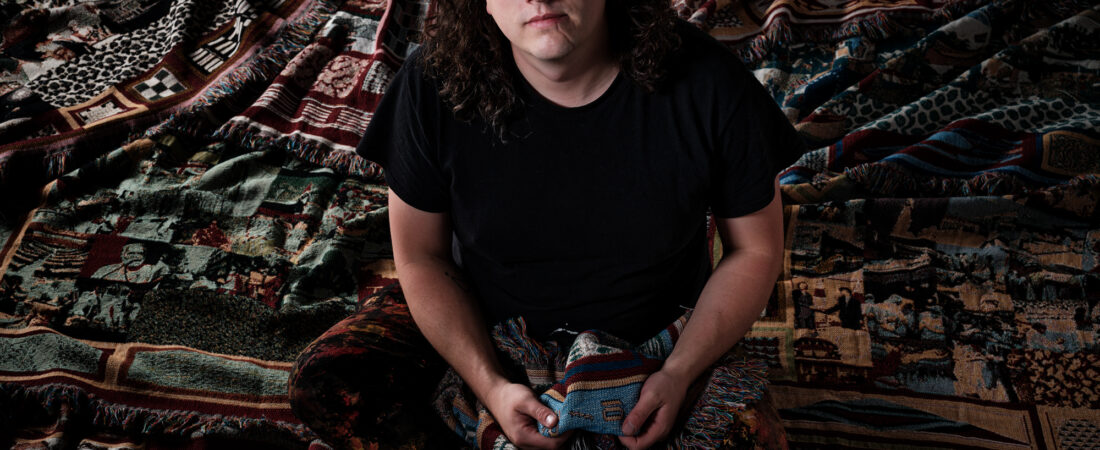Jonny Scholes (Class of 2009) – a Life that Unites Two Loves: Painting and Technology
Posted on April 3, 2024
Artist Jonny Scholes (2009) never went to art school. Instead, he taught himself to code and has built a life that unites his two great loves: painting and technology.
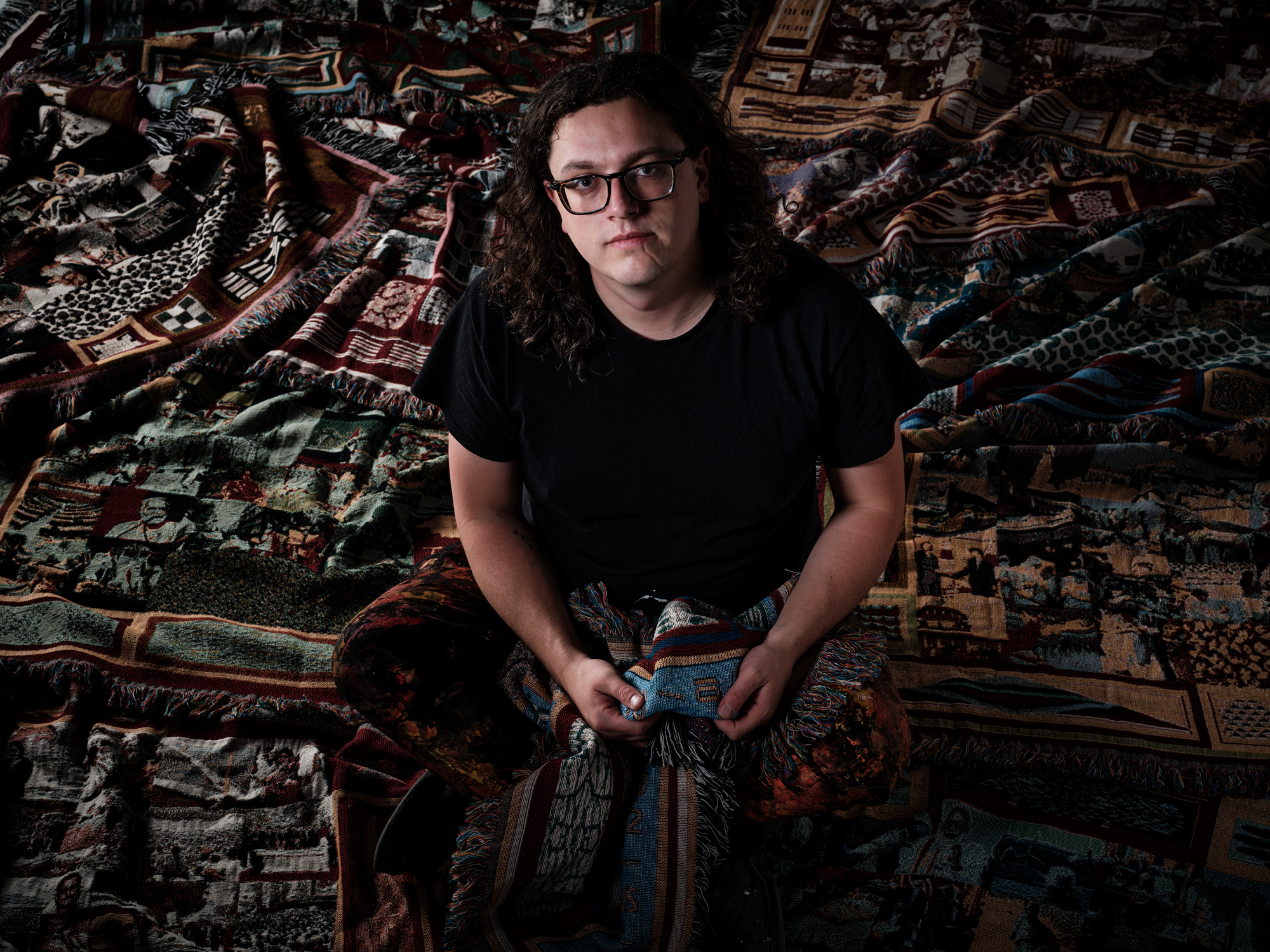
What did you do after leaving Friends’?
Out of school, I was living in share houses and doing whatever jobs to make money to make art. I started a computer science degree at The University of Tasmania, but I’d been writing code since I was 14 – and programming is something you can easily build on without a curriculum, particularly in those days – so, six months in, I left to take a job at a software development company. A couple of years later I left to help a friend build Neon Jungle, one of the few high-end design and software companies in Tasmania.
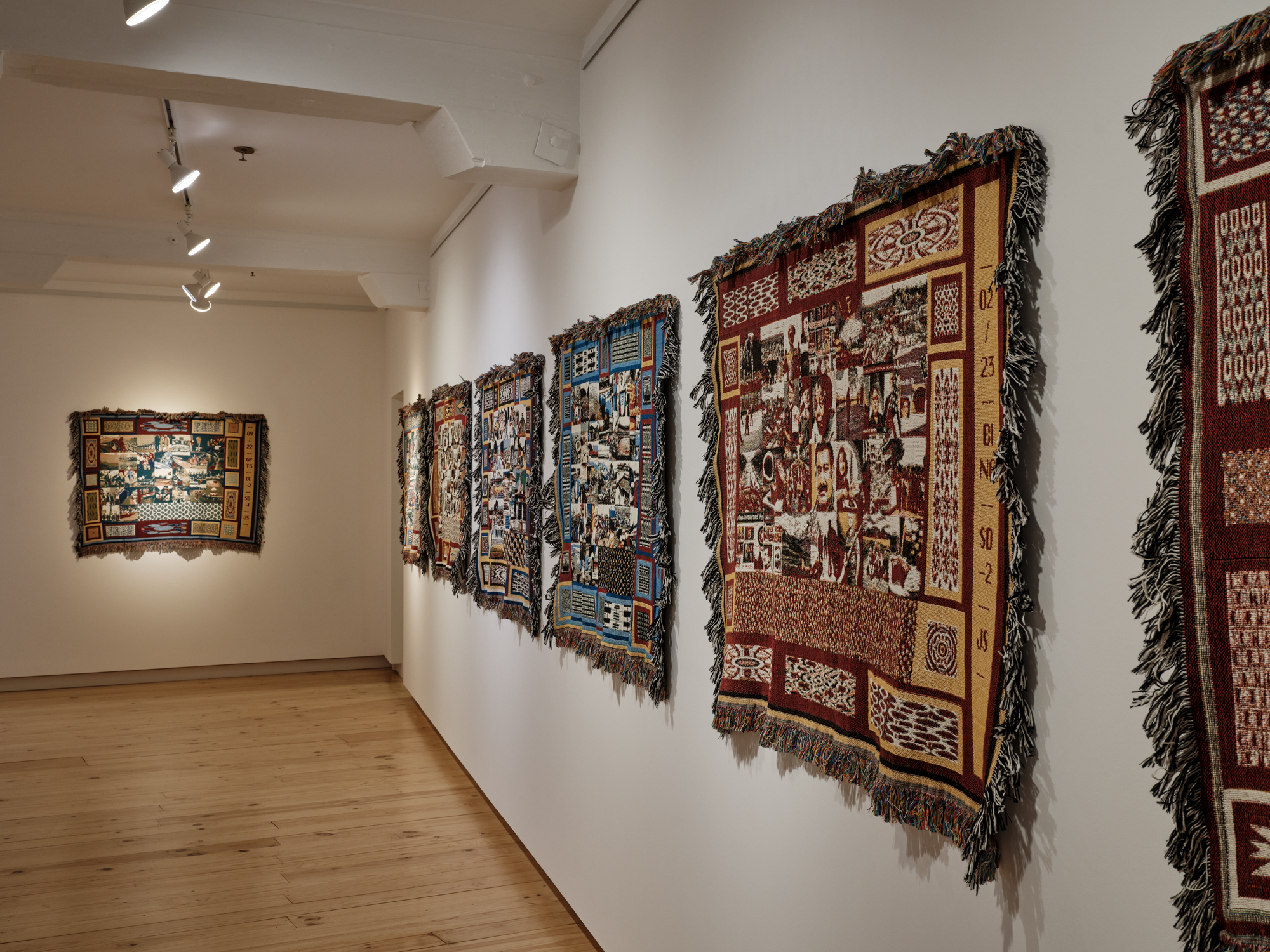
Did you see yourself as an artist then?
There was never an opportunity to not be an artist. Both my parents [filmmaker Roger Scholes and author Katherine Scholes] and my nana [landscape artist Elizabeth Smith] were artists. Being an artist was just assumed and fostered by all the adults in my life, including teachers. Some of my first shows in cafés and small galleries happened while I was at Friends’.
But I love technology. I grew up a child of the internet, part of the first generation for whom it was always present. I think I pushed boundaries of what you were supposed to do with your computer a bit at school but the teachers who saw that fostered my fascination and gave me more agency. The design and digital studies teacher Chris Wood would give me extra time and knowledge. It turned me into a software developer.
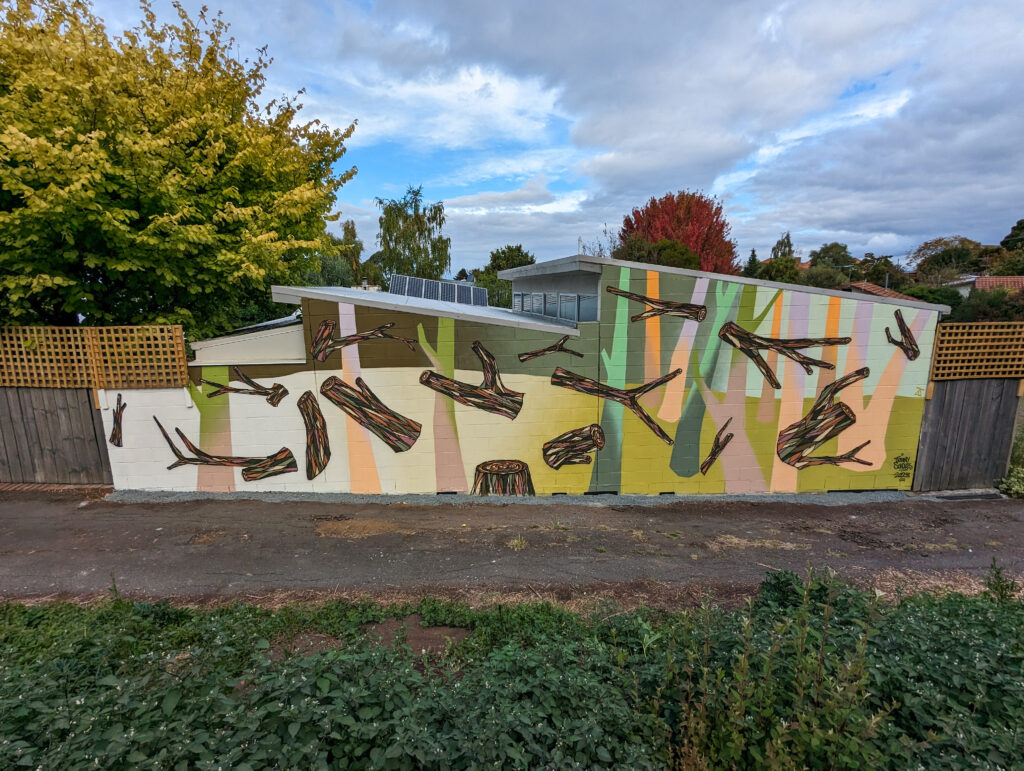
When did you start thinking in terms of open source?
I probably heard the term in Chris Wood’s class, and I’ve always been interested in software being free and accessible. Egalitarianism – the idea that everyone should have an equal opportunity – was an underlying value from my schooling and my upbringing. Knowledge should be shared.
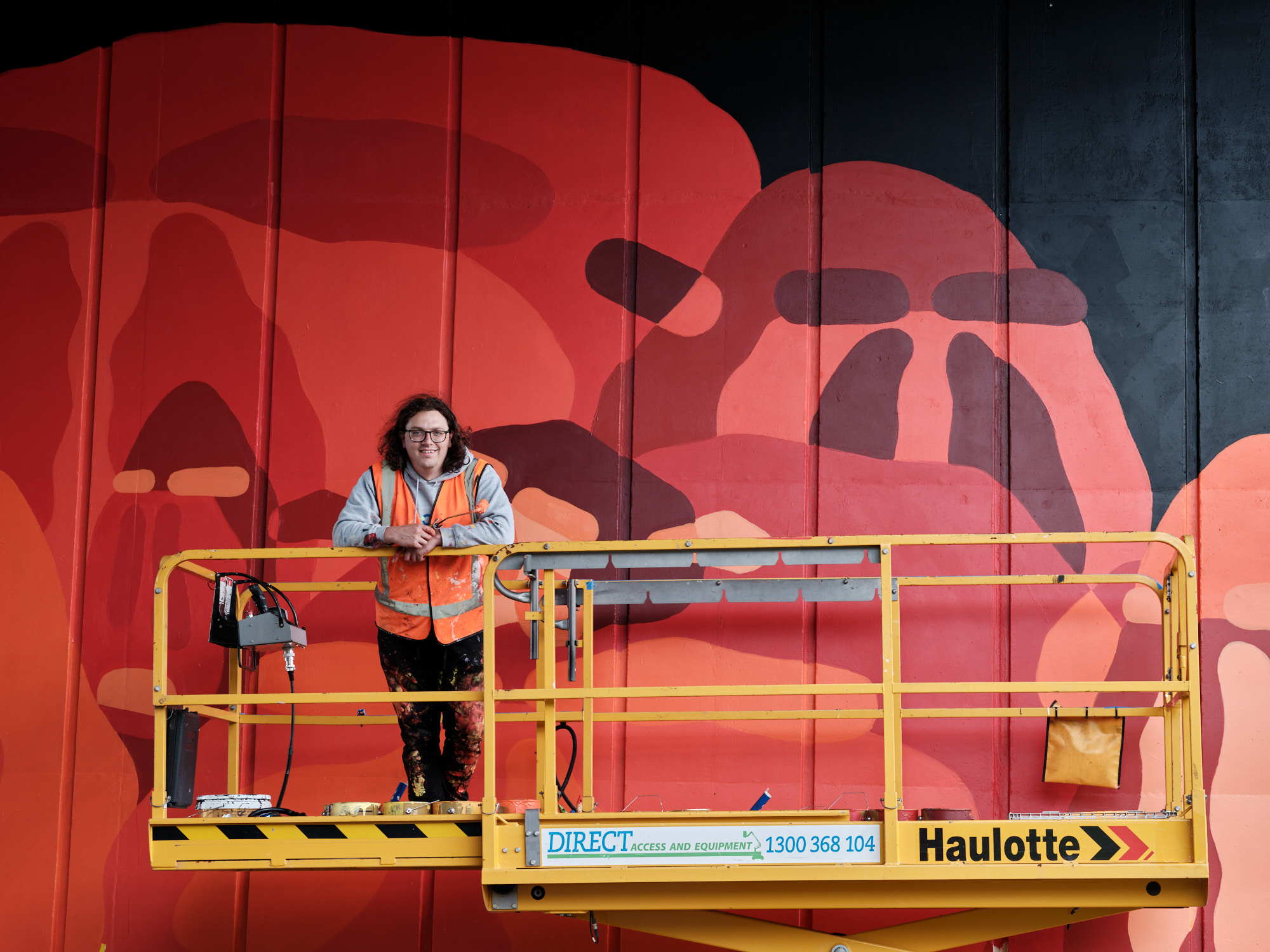
Why did you leave Neon Jungle in 2021?
It was one of the hardest decisions of my life. For four years, because they were generous with unpaid leave, I was able to paint lots of murals and founded a street art festival called Vibrance. But there were too many eggs in my basket. After the third festival I needed to choose: should I take a risk and shift the focus of my career towards the arts? Or continue down the path of software development? I chose Vibrance.
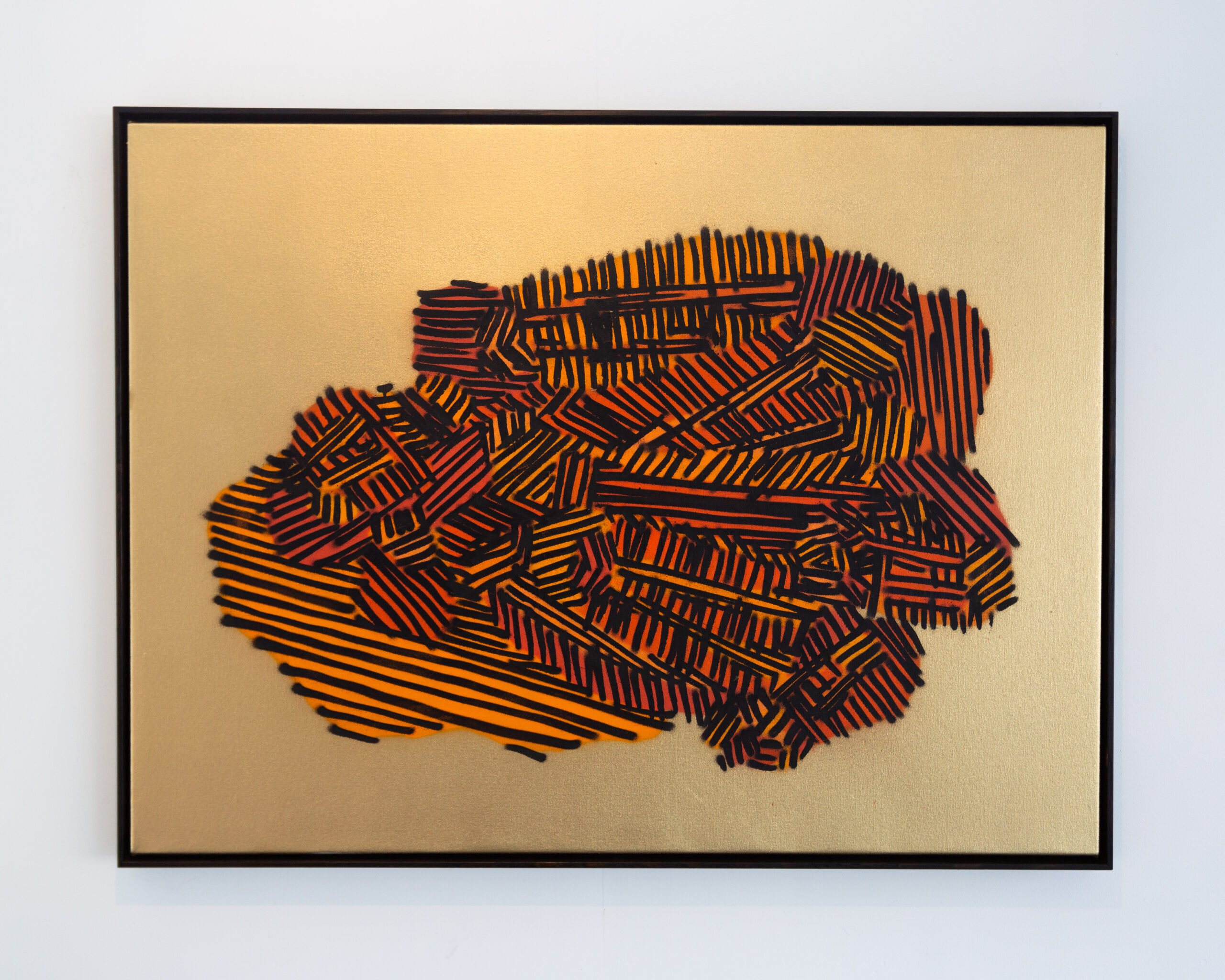
What does your work entail?
Vibrance manages mural projects for organisations around Tasmania. In the process, we try to empower the street art community by creating selection processes to find artists who need opportunities and who have a connection to street art. We also create our own projects: come up with ideas, find the grants and engage artists to realise them.
Over the last two years, I’ve shifted my own work to the front: developing my practice, getting my own exhibitions, building my own projects. I look back on my life and it’s like I’ve been playing chess. The end game is me being a full-time artist – a full-time artist where I get to work with technology and paint.
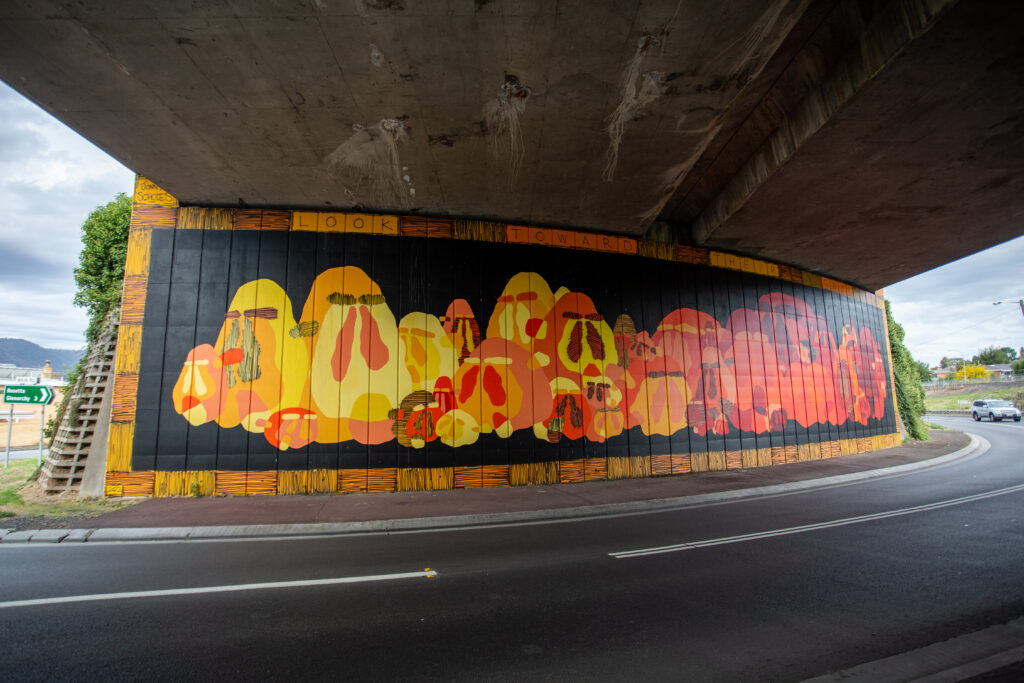
What are the current concerns of your art?
I think a lot about a positive future – not a utopia, but a future where we wind back climate change and use technology and our collective will to fight for more than the concentration of power and wealth. In my digitally focused work, I try to use my experiences as a developer to illustrate technology to people in ways they can understand its implications for the world around us.
But I’m also a street artist. I love painting walls and I always have. My painting is much more inward facing, it’s about exploring urban spaces and having time to myself. In most cases, I try not to think too much about art when I’m painting a wall.
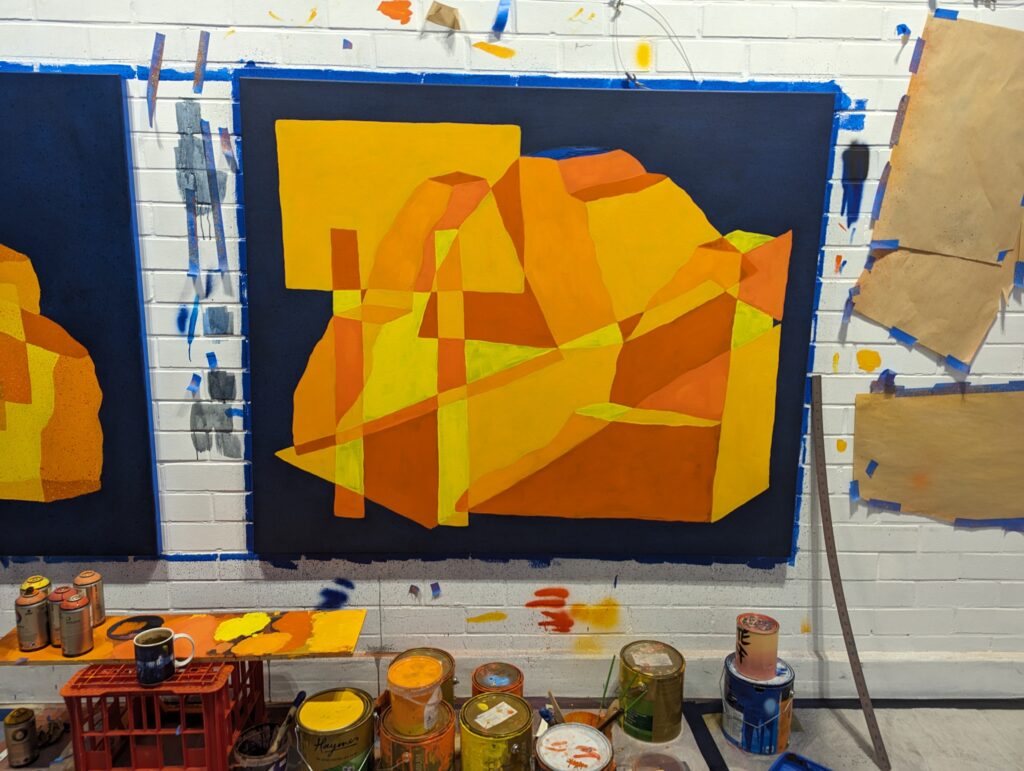
Are you worried about generative AI churning out Jonny Scholes-like artworks?
That doesn’t personally concern me. The work I’m interested in creating at present is resistant to being replicated because it’s being informed by emerging technologies. Many of my projects start by finding code samples included in recently published research papers, then seeing how I can apply them artistically.
I strongly believe that artists should be able to decide whether their work is included in AI training datasets. But in saying that, there is a conversion that needs to be had about when intellectual property becomes knowledge. It’s going to be a fuzzy conversation, but if we want to realise sci-fi ideas like post-scarcity then we need something that resembles artificial intelligence. And that requires a large database of knowledge that computer scientists have the social license to use to build it.
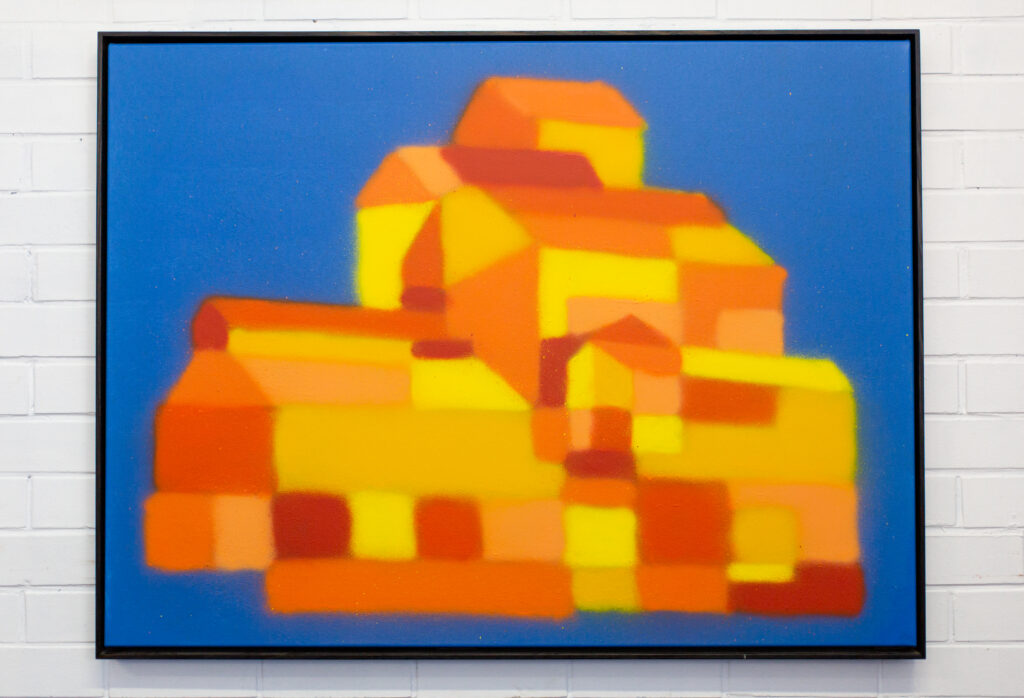
What would you advise someone who wants to pursue art as a career?
You can leave college and go straight into an intense practice of making art all day every day, and over time you’ll have a career in the arts. That is a tried-and-true method and a lot of my friends have lived the most fulfilling lives doing that. Another, longer pathway, which I didn’t realise I was on, is to find something else you’re also passionate about that generates a stable income and turns your life into a duality. Feed each with the other. It can be an easier pathway to self-sustainability – financially and materially. I became a software developer, which was deeply fulfilling and I miss it every day, but it made it easier for me also to be an artist.
There are pathways no matter where you go. You have to find that thing that, in your 20s, you’re happy to put 120 hours a week into. You’ve got to love it and live it and breathe it. If you find something you love that much, everything else will come after that.
“You have to find that thing that, in your 20s, you’re happy to put 120 hours a week into”
Jonny Scholes
